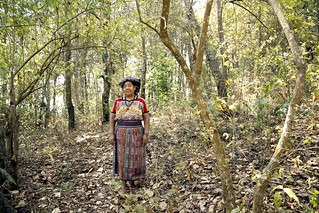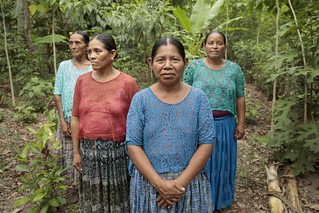
In a discussion on the International Day of Indigenous Women, Faustina Torres, businesswoman, and indigenous leader exposed the role of women as transmitters of knowledge between generations and as protectors of the environment, also of the socio-economic obstacles they face especially in the context of the COVID-19 Pandemic.
Torres commemorated this day by exposing the reality, that of her colleagues and native peoples in a virtual conversation with the Vice President of the Republic, Epsy Campbell; the Minister of Environment and Energy, Andrea Meza; the Minister for the Condition of Women, Patricia Mora and the Vice Minister of the Presidency, Randall Otárola.
The discussion that lasted more than an hour counted with the participation of Faustina Torres, leader of the Talamanca Cabécar territory, who called for advances in human rights to be reflected in their realities, “I must expose things as they are, I want to see the palpable change to be able to say that we are moving forward and not going backward. One of the best ways to celebrate this day is by fighting for the equal rights of indigenous women”.
The real situation in the country

In Costa Rica, year after year, the commitment to social policy has increased and given way to education, training, and availability of tools that allow indigenous women to have greater opportunities to improve their quality of life and that of their communities”, stressed Epsy Campbell, Vice President of the Republic.
In the activity, the authorities presented a series of actions developed with a gender perspective, such as the construction of public policy for indigenous peoples, the execution of a plan of attention to the territories in the face of the pandemic, and the participation of the population in the Program: +Mujeres + Naturales.
For Randall Otárola, Vice Minister of the Presidency, the role of indigenous women strengthens and legitimizes the processes with the communities, “women are protagonists in all the processes implemented in territories: in the construction of the public policy, in consultation of projects and conflict resolution. Their leadership is undeniable and on many occasions, it is the legitimated and authorized voice of women that allows projects for communities to have the destination desired by all”.
Strengthening of enterprises
Andrea Meza, Minister of Environment and Energy highlighted the close relationship of women with the conservation of forests and the environment: “For MINAE, recognizing the contribution of indigenous women in the management of natural resources is a priority, that is why through the + Mujeres + Naturales Program we are pleased to contribute to the strengthening of their undertakings, making special financial mechanisms available to them”.
She explained that “with this program, we seek that the biodiversity sector is a cornerstone to strengthen the enterprises carried out by women, move many of them to formality, as well as give them more opportunities and decent working conditions.”
Additionally, the Minister for the Condition of Women, Patricia Mora, commented on the construction of a process for the benefit of indigenous women that will be launched in the coming days. “Within the framework of this important date, today we recognize the work and contributions of women in the various indigenous peoples that inhabit our territory and we also recognize the historical debt that the country has with this population.
In the coming days from INAMU, we will be announcing the bases of a contest that could benefit indigenous women and their enterprises, many of them affected during the pandemic. This as one specific action among the many that must be undertaken in the framework of this crisis,” said the executive president of INAMU.

